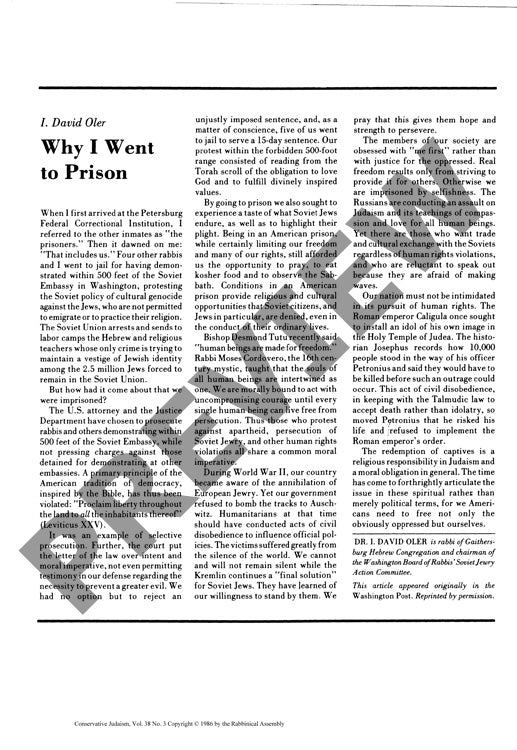Why I Went to Prison
Couldn't load pickup availability
In 1985, fifteen days in a federal prison became my protest against Soviet persecution of Jews - a calculated act of civil disobedience that tested the boundaries between religious duty and legal compliance. Through first-person documentation of my incarceration at Petersburg Federal Correctional Institution, I examine how selective prosecution by the U.S. Justice Department targeted rabbis demonstrating within 500 feet of the Soviet Embassy while ignoring similar protests at other diplomatic facilities. The stark contrast between American prison conditions, which accommodated religious practices including prayer, kosher food, and Sabbath observance, and the systematic religious oppression faced by Soviet Jews illuminates the moral stakes of this protest. Drawing parallels to World War II-era inaction regarding Holocaust victims, this narrative explores how religious leadership confronts state-sponsored cultural genocide through civil disobedience. The experience demonstrates that when facing systematic human rights violations, moral imperatives must supersede strict legal adherence - requiring uncompromising courage to defend fundamental human freedoms. This account contributes to our understanding of how religious leaders can effectively employ civil disobedience to combat human rights violations and cultural persecution.

More Information
-
Physical Description
-
Publication Information
Published 1986
ISBN
-
Publication Credits
I Oler

